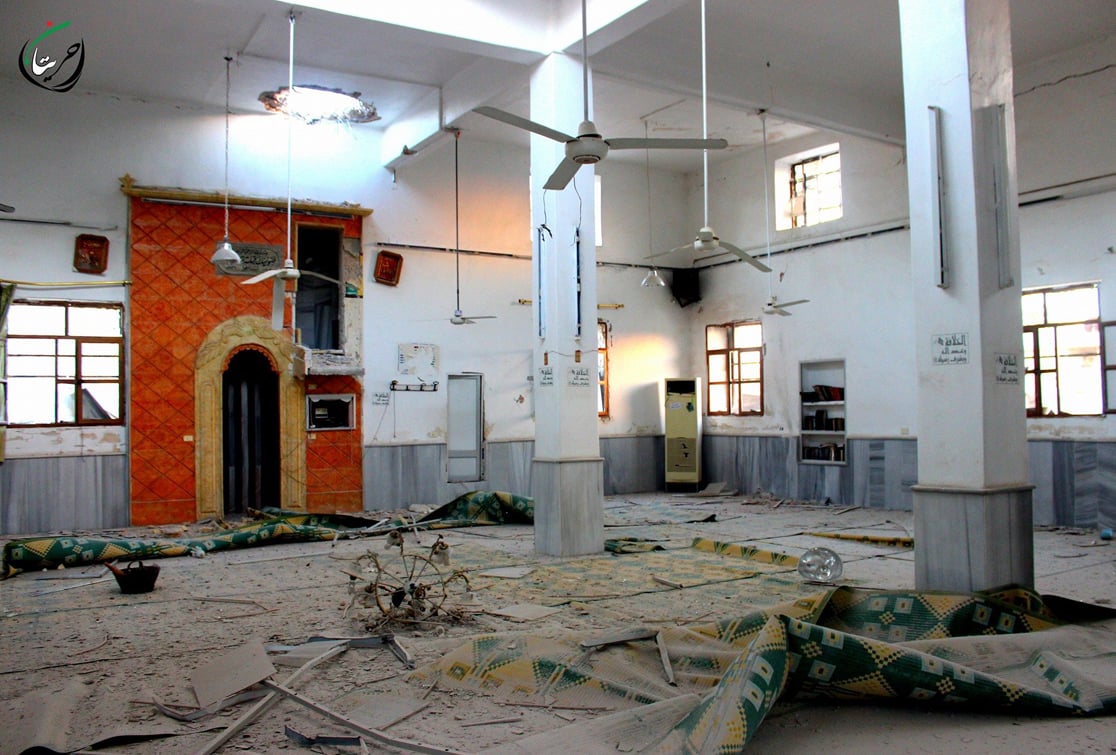Including 113 Incidents in June

SNHR has published its special periodic report on attacks against vital civil facilities by the conflict parties in Syria. The report sheds light on the attacks on vital civil centers in the first half of 2016 as well as June.
The report notes that frequency of bombardment and raids carried out by warplanes (government forces and Russian forces) declined since the commencement of the Cessation of Hostilities on 27 February 2016 and, consequently, the bombing against vital civil facilities also declined. However, one day after the High Negotiation Committee decided to postpone its participation in the Geneva talk on 19 April, government forces and Russian forces resumed bombing areas not controlled by government forces and rates of attacks against vital civil facilities returned to its former levels before the Cessation of Hostilities.
Fadel Abdul Ghani, chairman of SNHR, says:
“The Cessation of Hostilities statement is at risk of collapsing without a clear accountability mechanism for the violations of the Cessation of Hostilities. Unfortunately, we have never heard about any investigation being conducted on even one of the hundreds of violations we have documented. There must be a party who is the main responsible for this.”
The report sheds light on the incidents of attack against vital civil facilities in the first half of 2016 where we recorded no less than 536 incidents of attack against vital civil facilities; 279 of those attacks were carried out by government forces while 170 attacks were carried out by Russian forces. In addition, ISIS was responsaible for 22 incidents while armed opposition factions were responsible for 28 incidents, self-management forces were responsaible for two, and lastly the international coalition was involved in 12 incidents. In addition, we recorded 22 incidents where we couldn’t identify the group responsaible for the attack.
The report breaks down the attacked vital civil facilities as follows: 160 infrastructures, 89 vital educational facilities, 104 places of worship, 111 vital medical facilities, 35 communal facilities, 13 vital cultural facilities, 11 international humanitarian insignia, and 13 refugee camps.
Additionally, the report documents incidents of attack against vital civil facilities in June where 113 incidents were documented. The attacks were distributed by influential party as follows: 65 incidents by government forces, 40 incidents by Russian forces, one incident by self-management forces, three incidents by international coalition forces, and two incidents by armed opposition factions. Also, we documented two attacks by unidentified groups.
The vital civil facilities that were attacked in June, according to the report, were as follows: 44 infrastructures, 18 vital educational facilities, 19 places of worship, 21 vital medical facilities, seven communal facilities, three international humanitarian insignia, and one refugee camp.
Furthermore, the report notes that the documented attacks were only the minimum of the actual magnitude of crimes in light of the many practical difficulties during the documentation process.
The report affirms that investigations conducted by SNHR show that there were no military centers before or during these attacks. Government forces and the other perpetrators of these crimes must justify their actions before the United Nations and the Security Council.
According to the report, the international humanitarian law considers indiscriminate, deliberate, or disproportionate attacks as unlawful attacks. Government forces’ attacks against schools, hospitals, churches, and bakeries is an utter disregard for the most basic standards of the international humanitarian law and the Security Council Resolution.
The report also notes that the extremist Islamic groups and some of the other armed groups as well as Russian forces and the international coalition forces, have attacked some of these centers. The indiscriminate random bombardment is a violation of the international humanitarian law and amounts to a war crime.
The report calls on the Security Council to bind all parties, especially government forces considering that it is the main perpetrator of most of these violations, to implement Resolution 2139 and, at least, condemn the targeting of vital civil centers that are indispensable for the lives of civilians.
Finally, the report calls on the states that support the armed opposition to cease its support for the factions that didn’t respect the international humanitarian law.


